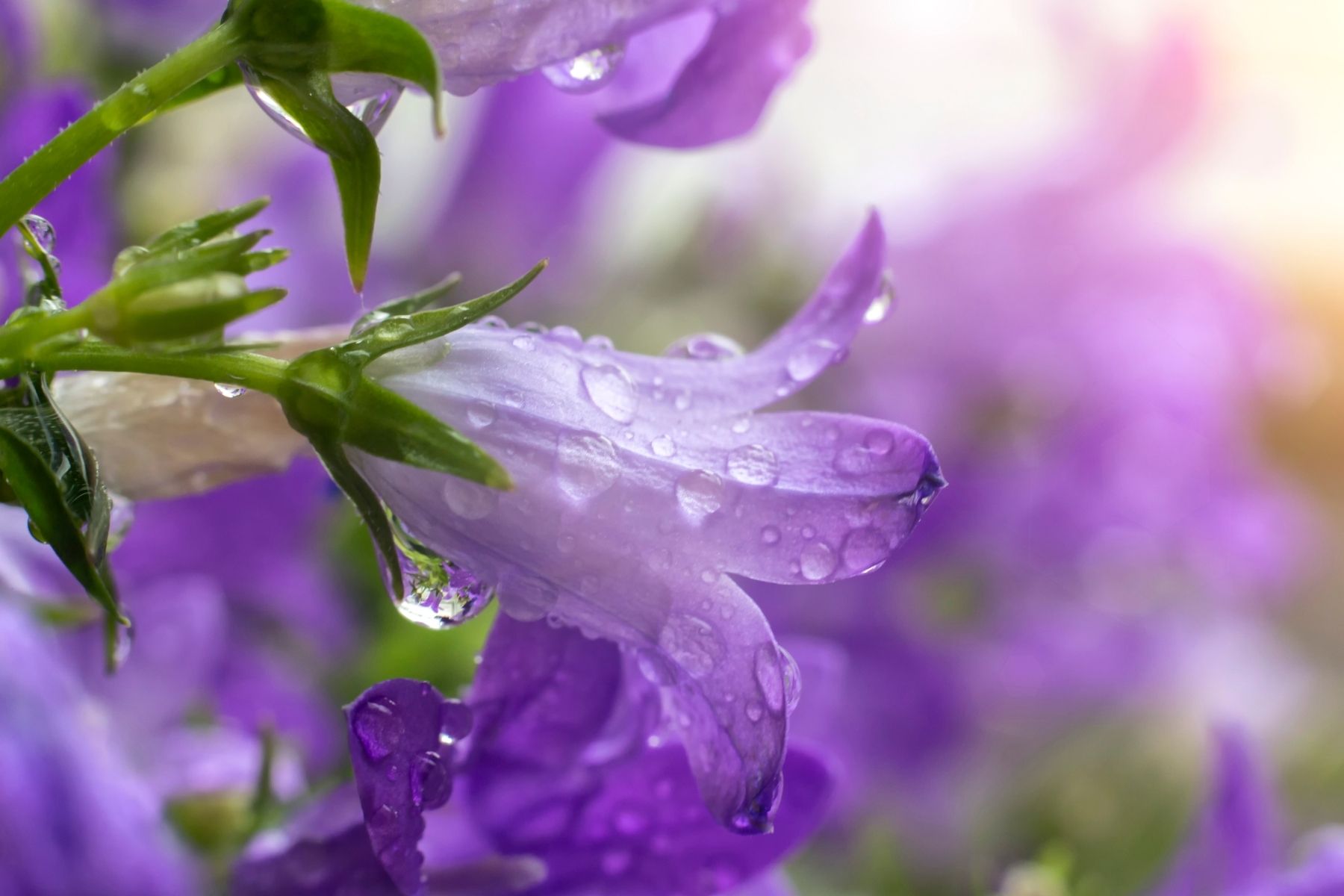Last Updated on April 12, 2024 by Real Men Sow
Campanula flowers can be found in a variety of plants. They include small, creeping species as well as tall perennials. Each has beautiful, often blue flowers and is attractive to pollinators.
What Is A Campanula Plant
Campanulas belong to the Campanulaceae family, which also includes lobelias, platycodon, and isotomas. Many campanulas can tolerate some shade so they are well-suited for small gardens or dark corners that aren’t overlooked by fences and walls.
How To Grow Campanula Flowers
Most campanulas grow naturally on chalky grasslands and woodland edges, which is fantastic news if you’re gardening on an alkaline soil. Campanulas require moist but well-drained soil – they tend to suffer in winter wet. Some thrive in the sun while others tolerate shade. Deadhead blooms to help flowering. You can cut the taller species back in autumn.
List of Campanula Varieties
Rotundifolia
This creeping perennial thrives in dry, nutrient-poor environments, which include chalky grasslands in the UK. They flower in midsummer through early autumn. Pollinating insects frequently visits this plant. You can grow in the shade or sun. (H x S: 30cm 30cm x 30cm)
Pyramidalis
This tall, erect species is either a biennial or perennial that will last a few years. Campanula pyramidalis is best grown from seeds each year. It thrives in moist soil that has been well-drained and in a sunny spot or partially shaded. This is a great choice for dramatic cut flowers. (H x S: 2m x 60cm)
Lactiflora
A clump-forming, floriferous campanula that produces large heads of clustered summer flowers, is a very floriferous variety. The ‘Prichard’s Variety’ is a popular variety that bears pale, violet-blue blooms. You can plant them in full sun to partial shade in moist, well drained soil. (H x S: 100cm x 50cm)
Poscharskyana
Campanula Poscharskyana is a mat-forming plant that you can grow in small spaces between bricks, tiles and stones. This plant is low-maintenance and will produce masses of vibrant flowers all through the year. It can even thrive in urban areas. You can grow it in full or partial sun. (H x S: 10cm x 50cm)
Carpatica
A very popular alpine campanula variety, has large open flowers and is easy to grow. The majority of varieties are white- or blue-colored and bloom from the early summer through late fall. (H x S: 2m x 60cm)
Portenschlagiana
A perennial campanula is ideal for well-drained, sunny, and partially shaded spots in your garden. It is beautiful growing in rock gardens and cascading over garden walls. (H x S: 50cm x 50cm)
Latifolia
This spectacular species is commonly known as the giant bellflower. It can reach a height of 120cm. (H x S: 150cm x 50cm)
Persicifolia
An old-fashioned perennial for cottage gardens. It has showy bell-shaped flowers on delicate stems. Best is a protected spot, with full sun to partial shade, and well-drained, moist soil. (H x S: 100cm x 50cm)
Glomerata
Can grow in cottage gardens or as a relaxed herbaceous border. The brightly-colored flowers add a burst of color to the garden. There are many beautiful cultivars available with white or pink flowers. You can grow them in full sun to partial shade in moist, well-drained soil. (H x S: 50cm x 100cm)
Campanula ‘Sarastro’
a combination of Campanula punctata, Campanula trachelium and stunning midnight blue flowers on tall stems. Pink Octopus, which has pink, divided flowers, is even more striking. You can grow them in full sun to partial shade in moist, well-drained soil. (H x S: 100cm x 50cm)

